The 365 Days of Astronomy
The 365 Days of Astronomy podcast launched in 2009 as part of the International Year of Astronomy. This community podcast continues to bring you day after day of content across the years. Everyday, a new voice, helping you see the universe we share in a new way. This show is managed by Avivah Yamani, edited by Richard Drumm. This podcast is funded through Patreon.com/CosmoQuestX and produced out of the Planetary Science Institute.
H'ad Astra Historia - Ep. 301 – Take the Gloves Off, Part 1

Today we're talking with Dr. Richard Tresch Fienberg (https://aas.org/press/richard-tresch-fienberg), astronomer and science communicator, who shares his experiences as Expert Astronomer on Sky & Telescope magazine's September 2025 Astronomy Tour to "Galileo's Italy." Though enjoying retirement, he volunteers his time for the American Astronomical Society as Senior Advisor to the CEO, and is a Senior Contributing Editor with Sky & Telescope. This is the first of two episodes covering our interview.
Loretta Cannon (an AAS affiliate via Rose City Astronomers) is a science-and-word-nerd who really likes outer space and the people who study it. She q...
Cheap Astronomy - Dear CA Ep. 130: What's Next?

Hosted by Steve Nerlich.
Cheap Astronomy investigates things that haven't happened yet.
- Dear Cheap Astronomy: When will the Sun destroy the Earth and can we stop it?
- Dear Cheap Astronomy: Will we ever meet aliens?
We've added a new way to donate to 365 Days of Astronomy to support editing, hosting, and production costs.
Just visit: https://www.patreon.com/365DaysOfAstronomy and donate as much as you can!
Share the podcast with your friends and send the Patreon link to them too!
Ever...
Awesome Astronomy - Ozone Hole II Mega-Constellation Boogaloo

Paul Hill and Dr. Jenifer "Dr. Dust" Millard host.
Damien Phillips, John Wildridge and Dustin Ruoff produce.
February Episode Part 2.
This episode we chat about the potential ozone hole issue caused by mega constellations, how Jupiter has shrunk and what Aurora would look like when Earth's poles flip.
We've added a new way to donate to 365 Days of Astronomy to support editing, hosting, and production costs.
Just visit: https://www.patreon.com/365DaysOfAstronomy and donate as much as you can!
Share the podcast with your fri...
Astronomy Cast Ep. 783: Cataclysmic Variable Stars

https://www.youtube.com/watch?v=hzFgfN2B_k4
Hosted by: Fraser Cain (@frasercain) and Dr. Pamela L. Gay (@CosmoQuest)
Streamed live on Feb 16, 2026.
There are many types of variable stars. Today we're gonna talk about cataclysmic variable stars, which are the result of a white dwarf stealing material from a companion star. And this whole process makes supervillain Pamela happy. Gravity is the weakest force, but on the scales of stars, it is capable of great violence. In this episode, we look at the wild physics of cataclysmic variables: binary star systems...
Travelers in the Night Eps. 857 & 858: Gila Cliff Dwellings & Vanishing Dark and Quiet

Dr. Al Grauer hosts. Dr. Albert D. Grauer ( @Nmcanopus ) is an observational asteroid hunting astronomer. Dr. Grauer retired from the University of Arkansas at Little Rock in 2006. travelersinthenight.org
From July 2025.
Today's 2 topics:
- Recently my Catalina Sky Survey teammate Dr. Hannes Gröller and I traveled to the Gila Cliff Dwellings National Monument to install two night sky meters which will enable this wonderful national treasure to become an international dark sky park. Surrounded by vast tracts of unoccupied public land and having an abundance of clear weather the Gila Cliff Dwellings N...
ASTROMAN - Solar Eclipse

Episode 14.
Our Sun is more than a glowing ball in the sky. It's a dynamic, ever-changing star at the peak of its solar cycle. In this episode of ASTROMAN: The Dark Sky Guardian, we learn how to safely observe sunspots and solar flares, and why studying solar activity helps protect satellites, power grids, and even predicts auroras.
"ASTROMAN: the Dark Sky Guardian" is a podcast channel that aims to explore popular science in multiple disciplines and research on interdisciplinary approaches, such as sustainability, dark-sky protection, astrophotography, space exploration, astronomy innovation, inclusive science communication, a...
EVSN - The Sky is Falling! Space Junk 411

In this episode, we take a closer look at how the increasing number of rockets and satellites going up mean there is also an unfortunate increase in the space junk coming down. We also cover dramatic weather, stars dying and disappearing, and update you on Maven and Paranal Observatory.
We've added a new way to donate to 365 Days of Astronomy to support editing, hosting, and production costs.
Just visit: https://www.patreon.com/365DaysOfAstronomy and donate as much as you can!
Share the podcast with your friends and send the Patreon li...
Actual Astronomy - Owning 20+ Telescope with Richard Navarette
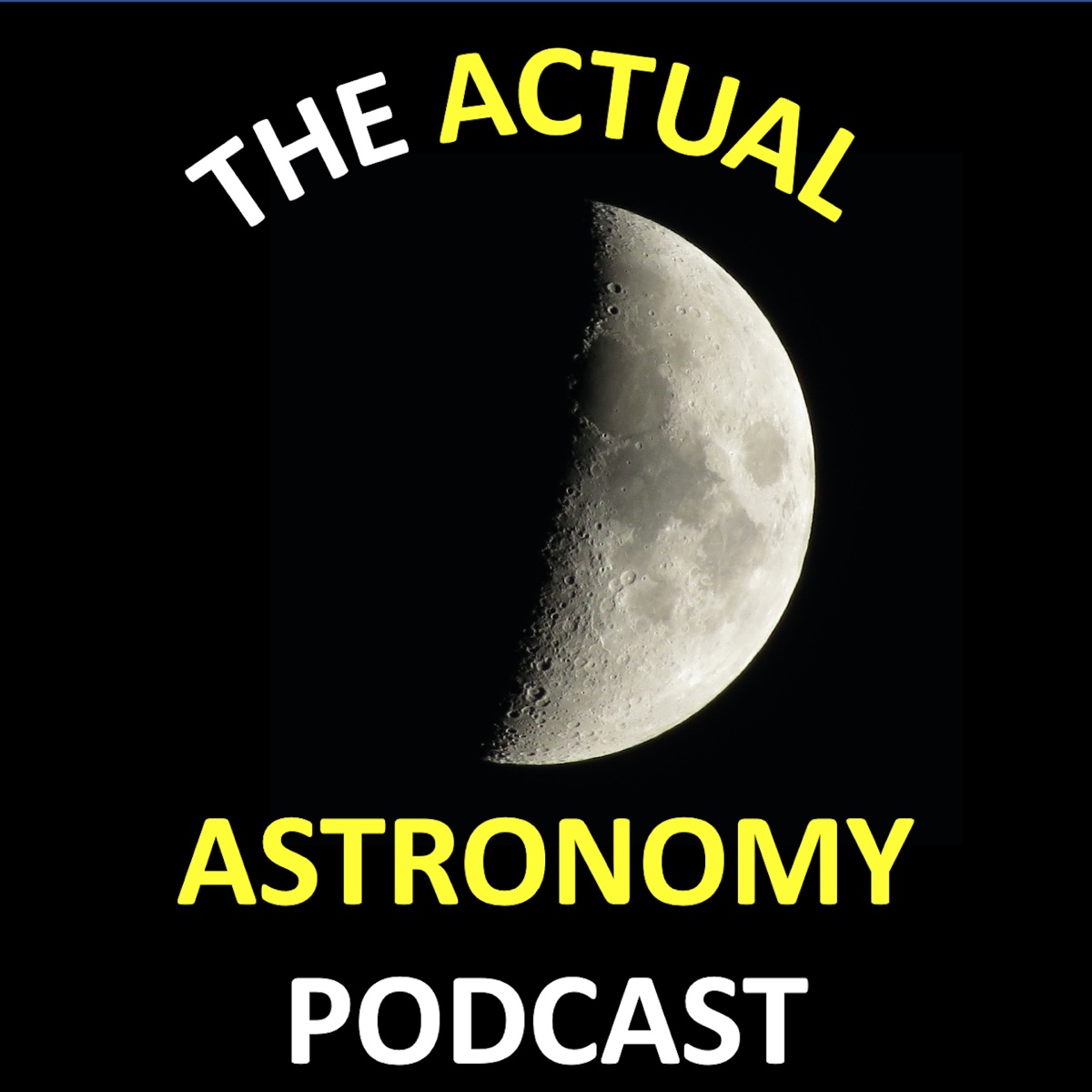
Hosted by Chris Beckett & Shane Ludtke, two amateur astronomers in Saskatchewan. actualastronomy@gmail.com
Episode 522.
Continuing on with our 2026 resolution we have a special guest listener joining us today.
Richard Navarette is a long time amateur astronomer from the San Francisco Bay Area where he has been instrumental in getting people out observing through The Astronomy Connection, well known as "TAC". Richard has owned 20+ telescopes over the years and while he has enjoyed viewing through many large instruments his personal collection has mostly been focused on portable, affordable gear.
W...
UNAWE Space Scoop - Cotton Candies Floating in Space?

Astronomers just found something cool!
Typically, most Sun-like stars host planets between the size of Earth and Neptune called 'super-Earths' or 'sub-Neptunes'. These planets often orbit their stars even closer than Mercury orbits our Sun. They're mostly rocky super-Earths or they have a thick atmosphere and a rocky core and are sub-Neptunes. They're the most common types of planet found in our Galaxy. And yet, astronomers weren't sure exactly how these planets formed.
So yeah, they found something cool!
We've added a new way to donate to 365 Days of Astronomy to supp...
Ask A Spaceman Ep. 266: Is the Universe Made of Math?

Hosted by Dr. Paul M. Sutter.
Why is math so effective at describing the Universe? What is reality is made of math? What does it mean for us to be conscious beings in a mathematical structure? I discuss these questions and more in today's Ask a Spaceman!
Support the show: http://www.patreon.com/pmsutter
All episodes: http://www.AskASpaceman.com
Watch on YouTube: http://www.youtube.com/PaulMSutter
Read a book: https://www.pmsutter.com/books
Keep those questions about space, science, as...
Astronomy Cast Ep. 782: Luminous Fast Blue Optical Transients
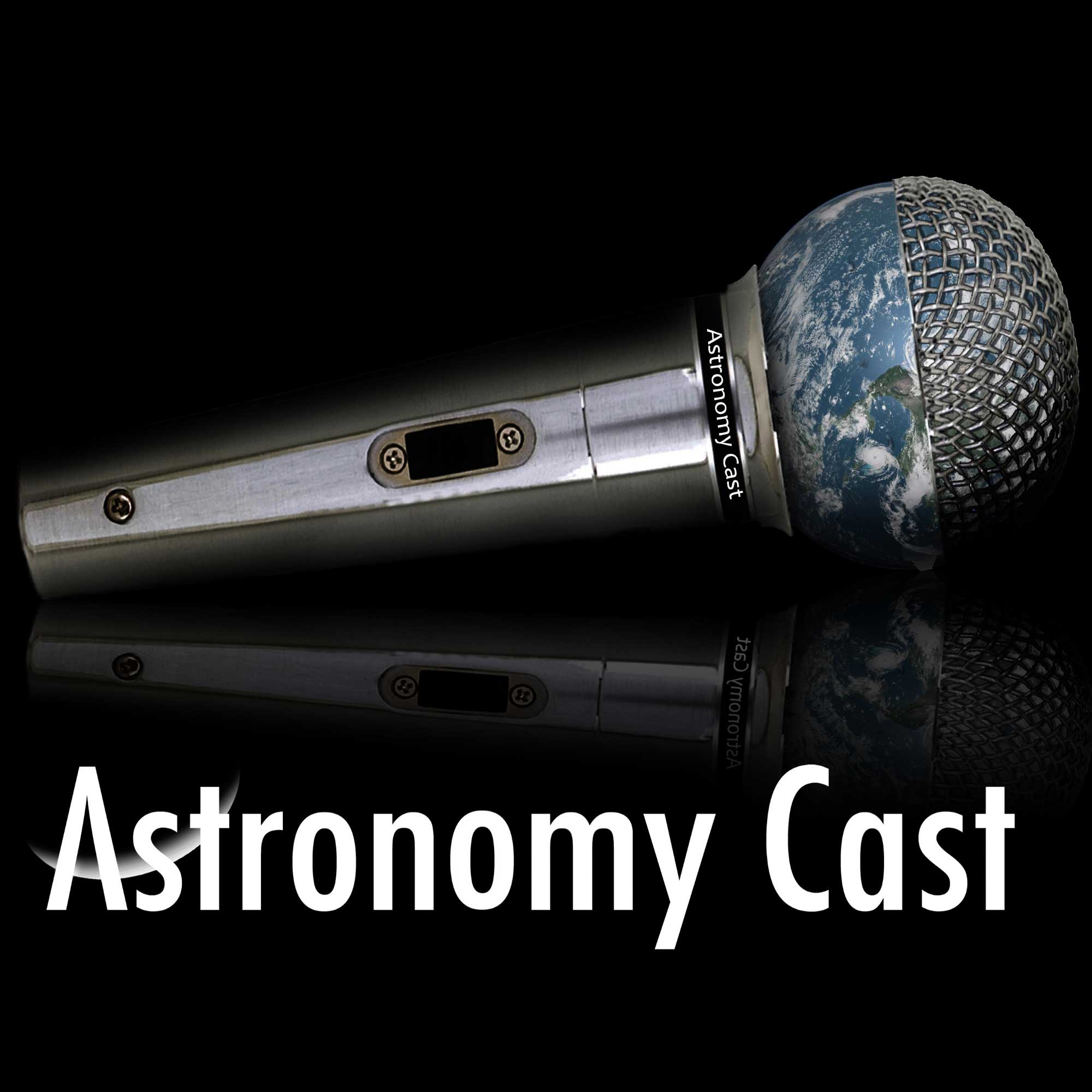
https://www.youtube.com/watch?v=sVvY9HGss8E
Hosted by: Fraser Cain (@frasercain) and Dr. Pamela L. Gay (@CosmoQuest)
Streamed live on Feb 13, 2026.
Modern astronomy has found that the Universe can surprise us. Here's one which astronomers have called Luminous Fast Blue Optical Transients. They're kinda like supernovas, they're kind of like gamma ray bursts, but they're not like them. So what are they? In the distant Universe, are blue light flashes, bright and hard to understand. These objects, uncreatively named "Luminous Fast Blue Optical Transients," are just the kind of puzzle...
Travelers in the Night Eps. 855 & 856: Planetary Defense & Big One
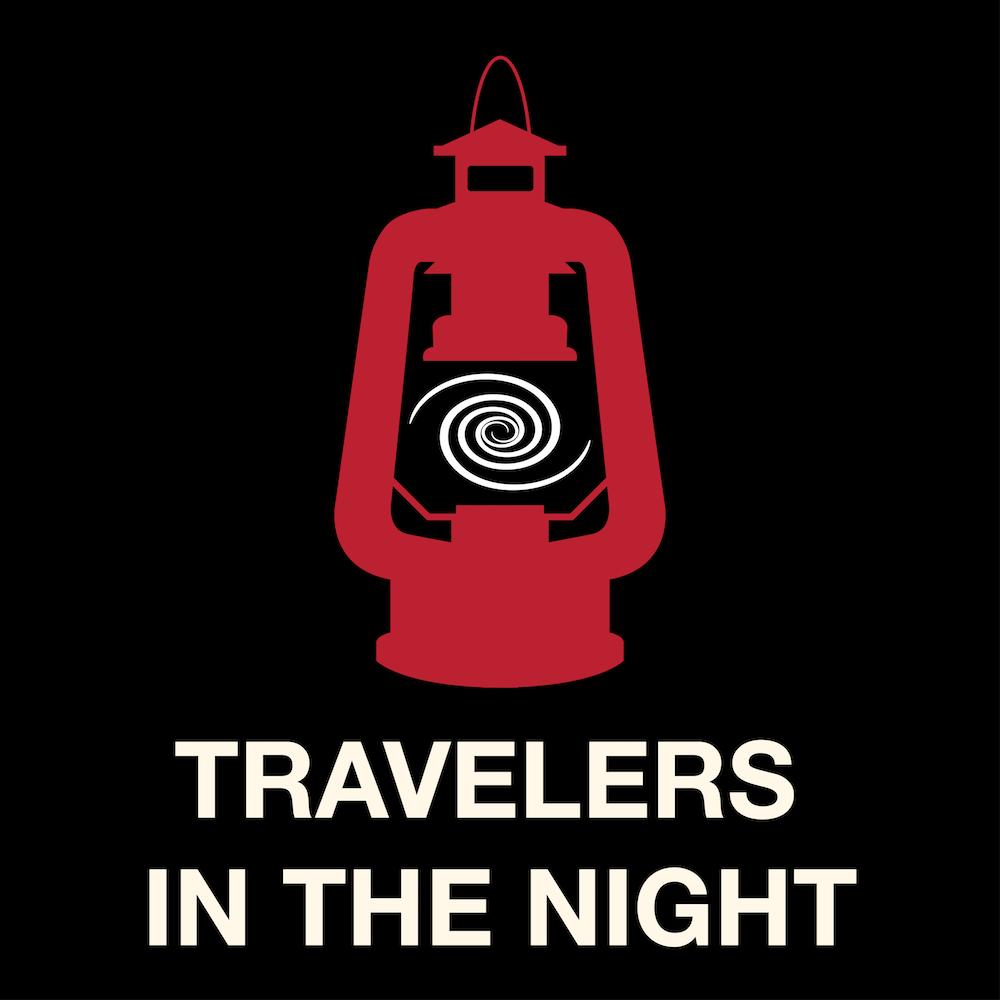
Dr. Al Grauer hosts. Dr. Albert D. Grauer ( @Nmcanopus ) is an observational asteroid hunting astronomer. Dr. Grauer retired from the University of Arkansas at Little Rock in 2006. travelersinthenight.org
From June & July 2025.
Today's 2 topics:
- In 2016 NASA created the Planetary Defense Coordination Office to manage the mission of finding, tracking, and studying asteroids and comets which could pose an impact threat to our home planet.The NASA documentary "Planetary Defenders" provides an excellent over view and can be streamed on the internet:
https://www.youtube.com/watch?v=jOb2DQWvDvc
<...NOIRLab - Mysterious Metallic Cloud Discovered Orbiting Mystery Object

Sweeping winds of vaporized metals have been found in a massive cloud that dimmed the light of a star for nearly nine months. This discovery, made with the Gemini South telescope in Chile offers a rare glimpse into the chaotic and dynamic processes still shaping planetary systems long after their formation. In this podcast, Dr. Nadia Zakamska describes the discovery of this object, stemming from a mysterious dimming of a star, to the analysis of the gas cloud.
Bios:
- Rob Sparks is in the Communications, Education and Engagement group at NSF's NOIRLab i...
EVSN - Galaxy Mergers Trigger Black Hole Growth

From May 21, 2020.
Join us today as we discuss the impressive work by an undergraduate student who figured out how galaxy mergers influence the growth of supermassive black holes. We talk about a gigantic galaxy found in the early universe. And finally, we look at amazing images of a planet being formed around a distant star.
We've added a new way to donate to 365 Days of Astronomy to support editing, hosting, and production costs.
Just visit: https://www.patreon.com/365DaysOfAstronomy and donate as much as you can!
Share the po...
Guide To Space - What Did Cassini Teach Us? Remembering Cassini and Saying Goodbye
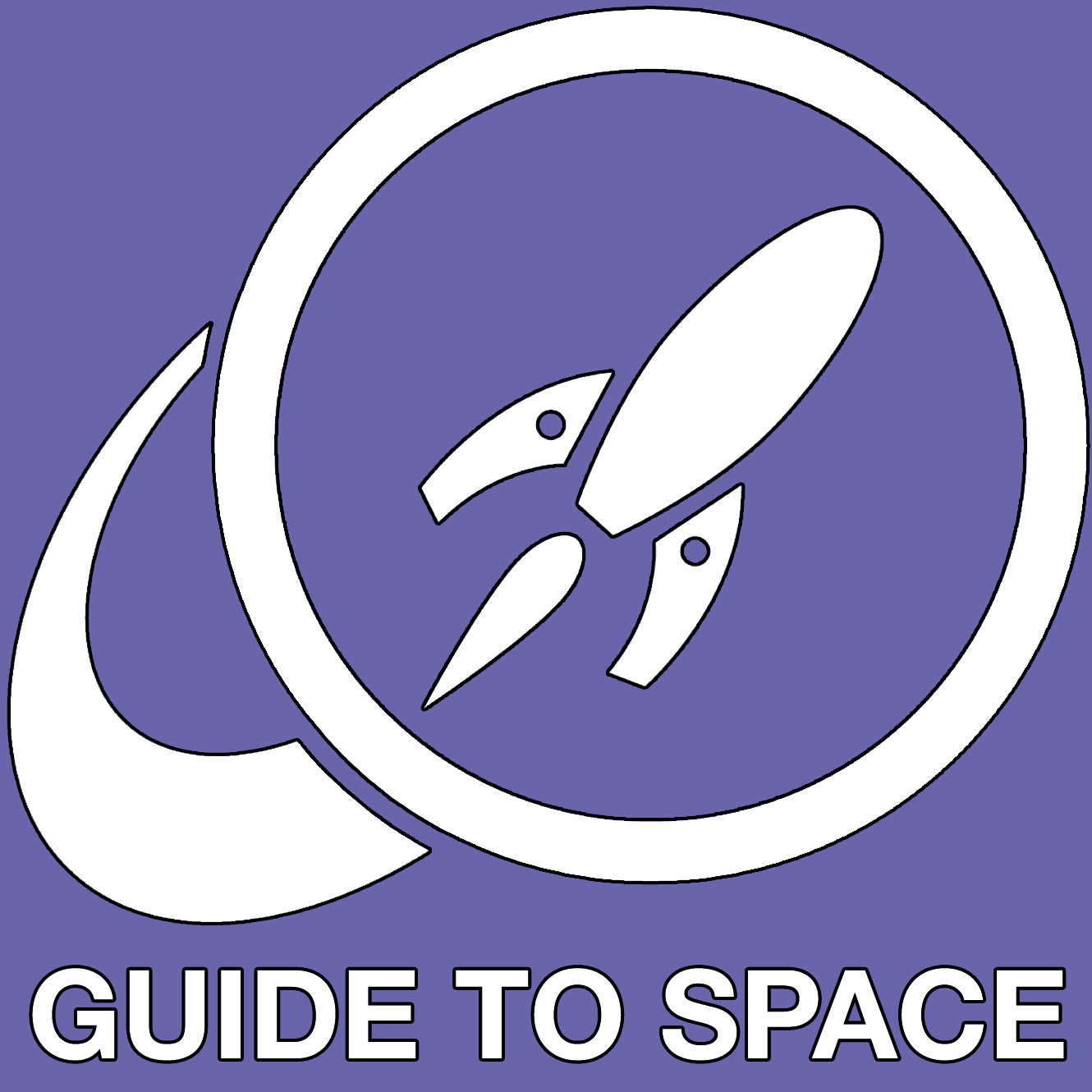
https://www.youtube.com/watch?v=-Alz4UXGqLk
From March 8, 2017.
In just a few months, NASA's Cassini spacecraft is going to die, crashing into the planet Saturn. Let's look back across the mission's history. What were the highlights? What did we learn?
Team: Fraser Cain - @fcain / frasercain@gmail.com
Karla Thompson - @karlaii
Chad Weber - weber.chad@gmail.com
Ask me my favorite object in the Solar System, especially to see through a telescope, and my answer is always the same: Sa...
Cheap Astronomy - Dear CA Ep. 129: More Rocks

A podcast about rocks, big and small.
Dear Cheap Astronomy – What's Psyche really like?
Psyche is an asteroid in the asteroid belt and apparently a very metal rich one, which makes it a prospecting target for budding asteroid miners. Pysche is also a spacecraft, launched on October 13, 2023. We're recording this episode about one month after launch when it's already over 15 million km from Earth – and its destination? Yep, Psyche – the asteroid.
Dear Cheap Astronomy – How is Mars Sample Return mission going?
Here at Cheap Astronomy we've often said that landing o...
Deep Astronomy - Discoveries of Webb Space Telescope Ep 3: The Flares of Sagittarius A*, Our Galaxy's Black Hole
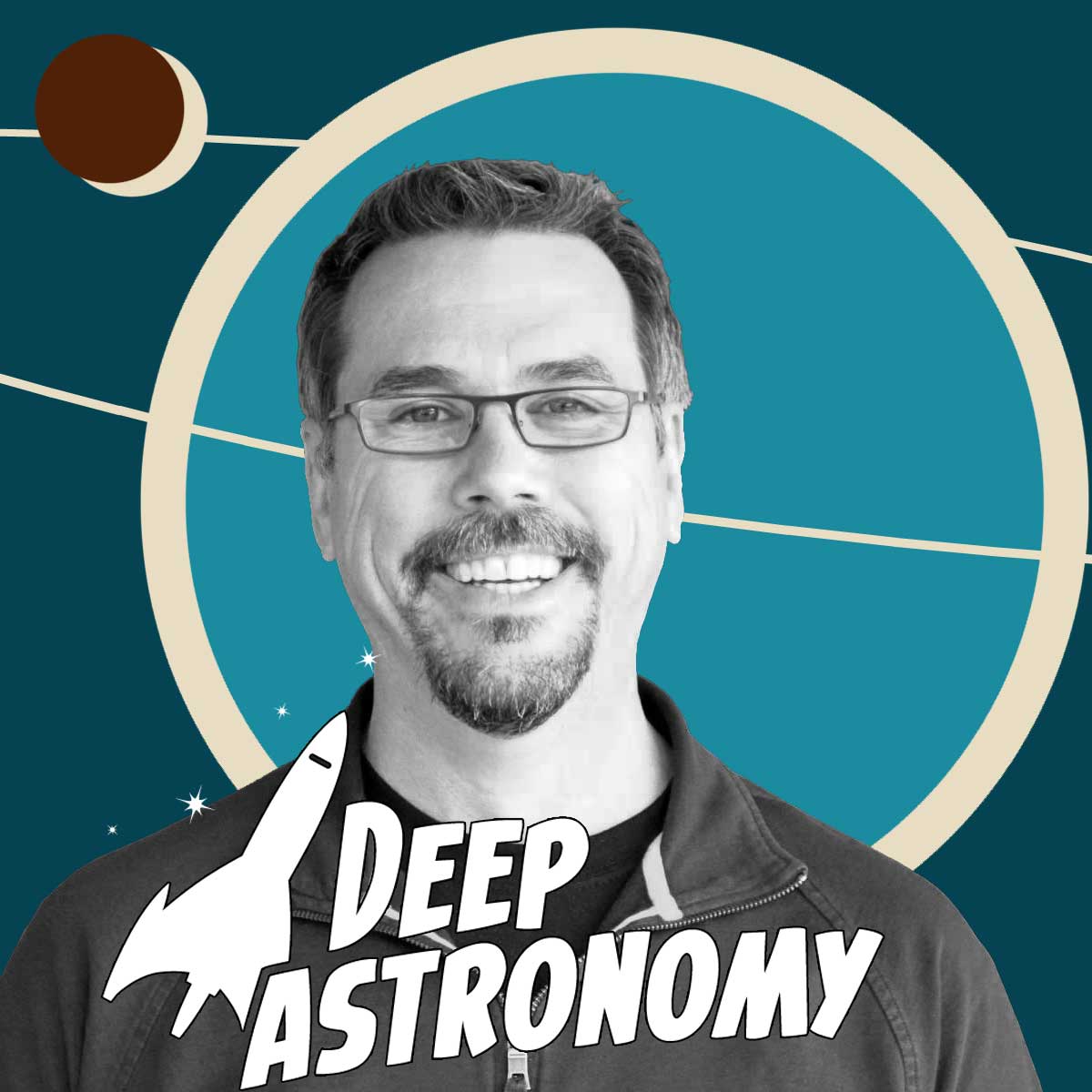
https://www.youtube.com/watch?v=d7FAg_AYXaw
From April 14, 2025.
Astronomers using the JWST have made direct observations of the black hole at the center of our galaxy: Sagittarius A*. These observations are possible because the Webb Space Telescope can peer through the dust at the center of our galaxy using infrared light. These observations surprised astronomers.
We've added a new way to donate to 365 Days of Astronomy to support editing, hosting, and production costs.
Just visit: https://www.patreon.com/365DaysOfAstronomy and donate as much as you can...
Astronomy Cast Ep. 781: Awakening Black Holes

https://www.youtube.com/watch?v=PpZRjII8qkc
Hosted by: Fraser Cain (@frasercain) and Dr. Pamela L. Gay (@CosmoQuest)
Streamed live on Feb 2, 2026.
One long standing mystery in astronomy were the quasars. Incomprehensible energy blasting out of a point-like source, billions of light years away. We now know these are actively feeding supermassive black holes, which can turn off and on in a startlingly short period of time. Today: When black holes awaken! Our Universe is filled with sleeping monsters. And sometimes, whether we want it or not, they wake up hungry. In...
Travelers in the Night Eps. 853 & 854: Tardigrade & Weird Planet, Exotic Life

Dr. Al Grauer hosts. Dr. Albert D. Grauer ( @Nmcanopus ) is an observational asteroid hunting astronomer. Dr. Grauer retired from the University of Arkansas at Little Rock in 2006. travelersinthenight.org
From June, 2025.
Today's 2 topics:
- In the search for life on Mars, Europa, Titan, and elsewhere in the universe astro-biologists are scouring the Earth for creatures tough enough to flourish under really difficult conditions. So far the leading species are the Tardigrades commonly known as water bears or moss piglets.
- Data are consistent with the hypothesis that the planet K2-18...
Equatorial Sky Guide For February
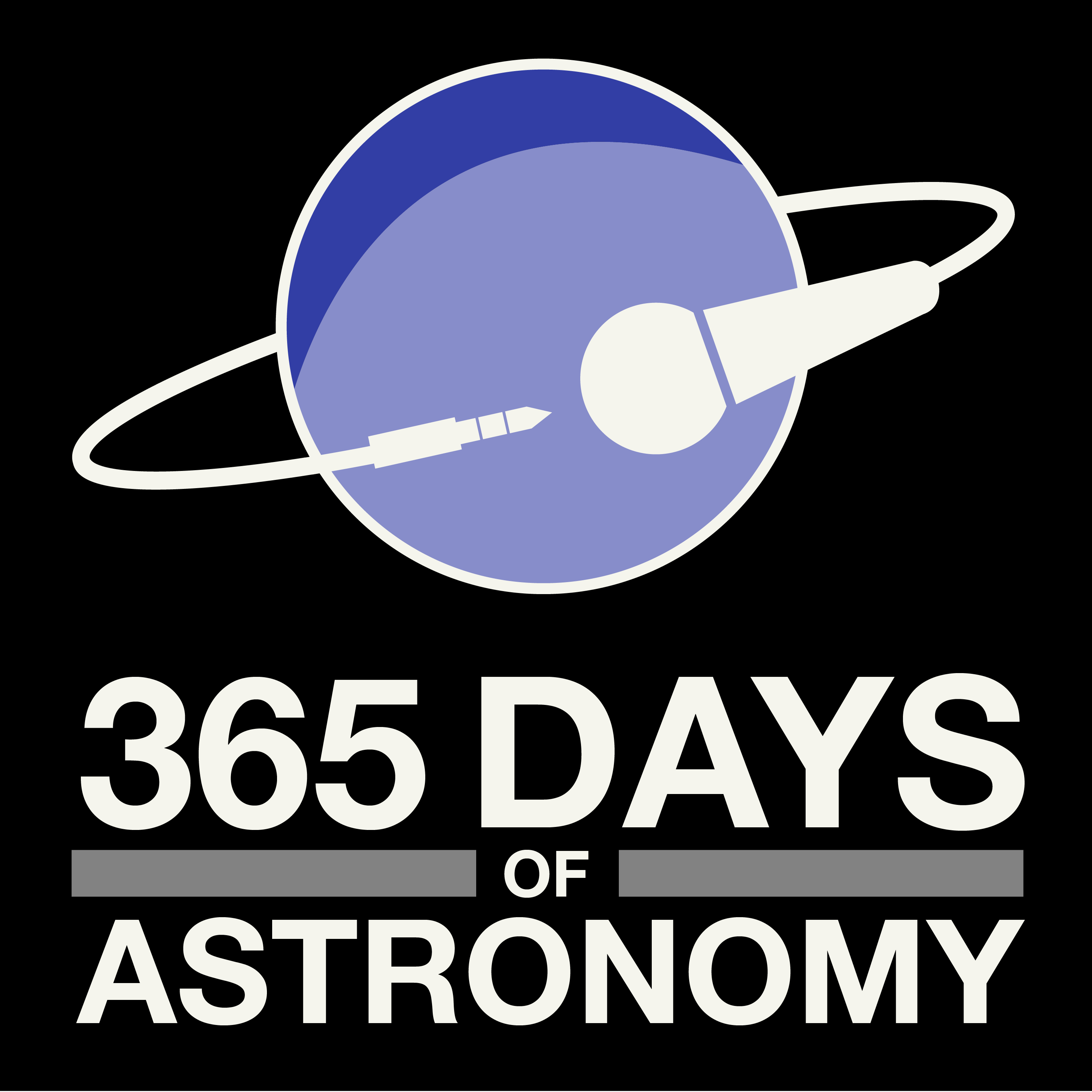
Hosted by Avivah Yamani, our Director.
February 2026 is packed for stargazers at the equator, with a dusk-time planet parade, dark New Moon skies for astrophotography, and the year's first "Ring of Fire" annular solar eclipse on February 17 (visible from Antarctica). Catch beautiful Moon pairings with Antares, Saturn, the Pleiades, and Jupiter, and join the Globe at Night campaign to help measure light pollution in your area.
We've added a new way to donate to 365 Days of Astronomy to support editing, hosting, and production costs.
Just visit: https://www.patreon.com/365DaysOfAstronomy an...
EVSN - JWST Makes Sense of the Early Universe

From January 28, 2026.
In this episode we look at highlights from the latest American Astronomical Society Meeting. An accidental theme came out: with each new telescope and each improved instrument we can look more closely at our Universe - we can and do learn more and understand more even about the things we thought we knew best. In this episode, Rubin Observatory brings rapidly rotating asteroids, and JWST peers at objects thriving in the first 2 billion years of our universe. Observatory after observatory brings us new science.
We've added a new way to donate t...
Actual Astronomy - February Observer's Calendar

Hosted by Chris Beckett & Shane Ludtke, two amateur astronomers in Saskatchewan. actualastronomy@gmail.com
This month we talk about the Moon occulting Regulus, Saturn and Neptune pairing up while Mercury is visible in the evening sky and occulted by the Moon for some. The Zodiacal light also becomes visible in February and we give you the details on seeing lunar features and some of the best Deep Sky objects plus the Carbon and Double Stars to see at this month.
Feb 1 - Full Moon - 26 Aur Coulorful Double
Feb 2 - Regulus o...
Awesome Astronomy - The End of British Astronomy?
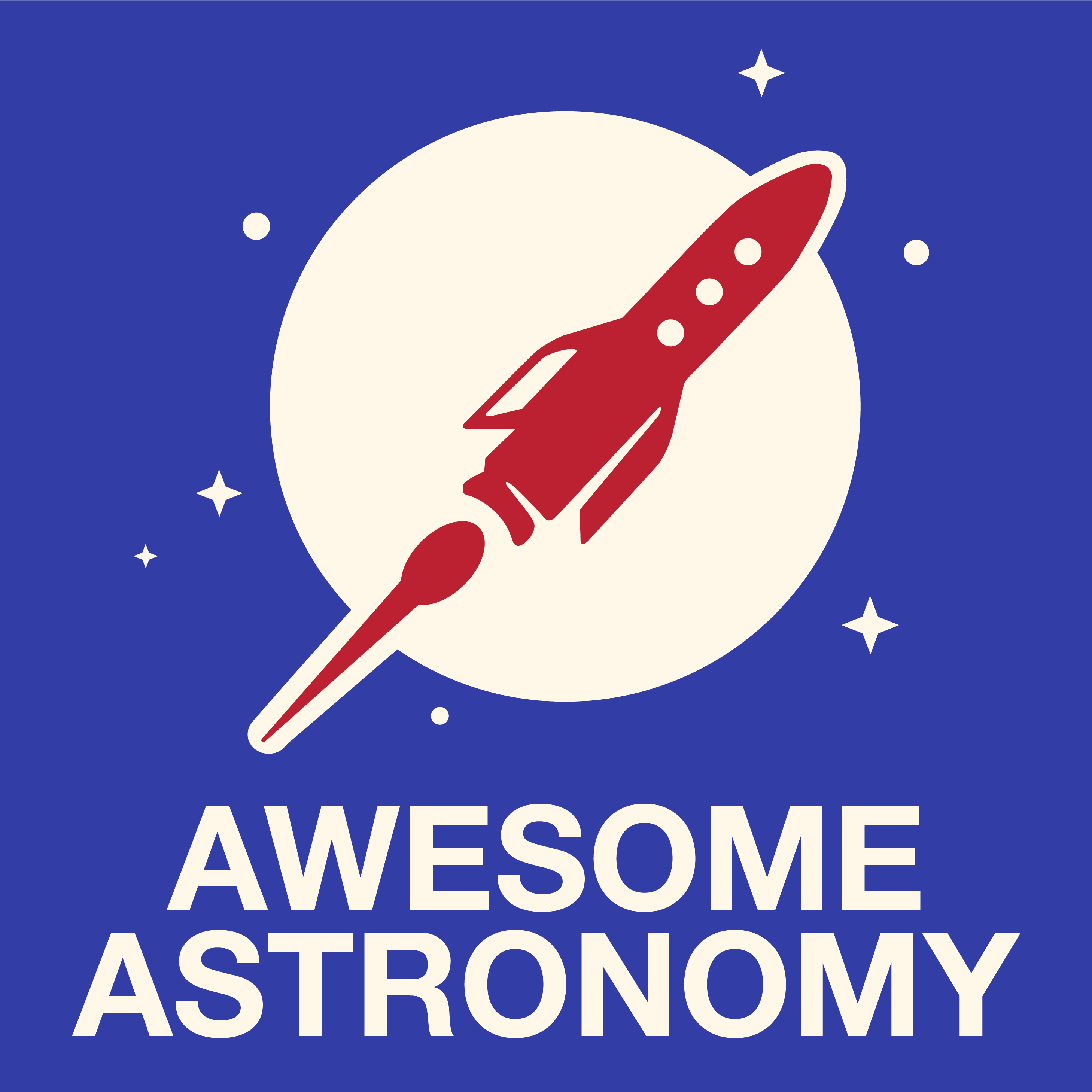
Paul Hill and Dr. Jenifer "Dr. Dust" Millard host.
Damien Phillips, John Wildridge and Dustin Ruoff produce.
We discuss the British Government's vandalism of UK physics and astronomy. In better news we celebrate the refunding of NASA and the up coming Artemis II mission… will Paul finally get excited?
We've added a new way to donate to 365 Days of Astronomy to support editing, hosting, and production costs.
Just visit: https://www.patreon.com/365DaysOfAstronomy and donate as much as you can!
Share the podcast with your friends and s...
Ask A Spaceman Ep. 265: Does Antimatter Fall Up?

Hosted by Dr. Paul M. Sutter.
What is the weak equivalency principle? How was antimatter discovered and why is it the perfect thing to put gravity to the test? What did the CERN experiment discover? I discuss these questions and more in today's Ask a Spaceman!
Support the show: http://www.patreon.com/pmsutter
All episodes: http://www.AskASpaceman.com
Watch on YouTube: http://www.youtube.com/PaulMSutter
Read a book: https://www.pmsutter.com/books
Keep those questions about space, science, astronomy, as...
Astronomy Cast Ep. 780: When Asteroids & Comets Attack!

https://www.youtube.com/watch?v=sIVunut4Dgk
Hosted by: Fraser Cain (@frasercain ) and Dr. Pamela L. Gay (@CosmoQuest )
Streamed live on Jan 26, 2026.
We live in a cosmic shooting gallery. It's not a matter of "if" but "when"! Dinosaurs, blah, blah, blah. You know the drill. But seriously, folks, it's raining rocks & ice out there! How seriously should we take it? What happens when a variety of different objects hit the Earth? Different kinds of objects affect Earth very differently when they impact. Let's discuss what makes an impactor more or less dangerous.<...
Travelers in the Night Eps. 851 & 852: Scientists Views Odds of Aliens & Landing On Mars

Dr. Al Grauer hosts. Dr. Albert D. Grauer ( @Nmcanopus ) is an observational asteroid hunting astronomer. Dr. Grauer retired from the University of Arkansas at Little Rock in 2006. travelersinthenight.org
From May & June, 2025.
Today's 2 topics:
- In a recent paper published in Nature Astronomy entitled "Surveys of the scientific community on the existence of extraterrestrial life" Dr. Peter Vickers and his team of 10 co-authors report the results of their survey of the lead authors for the past 10 years in the top three astro-biological journals. These researchers sought to measure if their sample group of sc...
Space Stories - Perihelion & Aphelion

Hosted by our Director, Avivah Yamani.
Earth swings closest to the Sun at perihelion and farthest at aphelion, words that apply to every planet orbiting the Sun. Learn how Kepler's laws reveal an elliptical orbit, why Earth moves faster at perihelion, and why seasons come from Earth's tilt, not distance.
We've added a new way to donate to 365 Days of Astronomy to support editing, hosting, and production costs.
Just visit: https://www.patreon.com/365DaysOfAstronomy and donate as much as you can!
Share the podcast with your friends and se...
EVSN - Mystery of Mars' Recurring Slope Lineae Possibly Solved

From February 8, 2021.
A new theory has been proposed that could answer the question of what causes recurring landslides on Mars: small-scale ice melting just below the surface may leave the regolith vulnerable to wind. Plus, a look at some of Earth's ancient climate changes, a gamma-ray source, puffy galaxies, and this week's What's Up.
We've added a new way to donate to 365 Days of Astronomy to support editing, hosting, and production costs.
Just visit: https://www.patreon.com/365DaysOfAstronomy and donate as much as you can!
Share the podcast wi...
Guide to Space - Thanks To Gaia We Now Know Exactly Where 1.7 Billion Stars Are In The Milky Way

https://www.youtube.com/watch?v=lxgdcG_NQyA
Hosted by Fraser Cain. And a happy robin.
From May 3, 2018.
The European Space Agency just dropped an enormous amount of data onto the scientific community. The location and position of 1.7 billion stars in the Milky Way.
We've added a new way to donate to 365 Days of Astronomy to support editing, hosting, and production costs.
Just visit: https://www.patreon.com/365DaysOfAstronomy and donate as much as you can!
Share the podcast with your friends and send the Pat...
Awesome Astronomy - 3 Days to Lose LEO

Paul Hill and Dr. Jenifer "Dr. Dust" Millard host.
Damien Phillips, John Wildridge and Dustin Ruoff produce.
So it looks like Low Earth Orbit is not just crowded but a disaster waiting to happen trapping humanity on this planet for a very long time…
https://www.esa.int/Space_Safety/Space_Debris/Space_debris_by_the_numbers
https://arxiv.org/abs/2512.09643
We've added a new way to donate to 365 Days of Astronomy to support editing, hosting, and production costs.
Just visit: https://www.patreon.com/365DaysO...
Cheap Astronomy - Dear CA #128: Persistent Claims

Still looking.
Hosted by Steve Nerlich.
Dear Cheap Astronomy – Is there anything new on Planet 9?
Well, not really and there is some growing skepticism about whether it's really there. Nonetheless, its original proponents, Mike Brown and Konstantin Batygin, still stick to their guns on the matter, though both agree Planet 9's existence must be considered speculative until it is actually observed.
Dear Cheap Astronomy – Is Nemesis really out there?
Continuing the theme of hypothetical solar system bodies, Nemesis was proposed to be a small, dim and hence diffi...
Astronomy Cast - Questions: Relativity, Relativity & More Relativity

From October 23, 2008.
Hosted by Fraser Cain & Dr. Pamela Gay.
Everyone loves a theme. And this week we've collected together some of your questions about relativity. More light speed spacecraft, twin paradoxes, and the mixing up of gravity, time and mass. If you've got a question for the Astronomy Cast team, please email it in to info@astronomycast.com and we'll try to tackle it for a future show. Please include your location and a way to pronounce your name.
- What would happen if you're traveling close to light speed through t...
Travelers in the Night Eps. 849 & 850: Europa Clipper & Who Owns A Space Rock?

Dr. Al Grauer hosts. Dr. Albert D. Grauer ( @Nmcanopus ) is an observational asteroid hunting astronomer. Dr. Grauer retired from the University of Arkansas at Little Rock in 2006. travelersinthenight.org
From May, 2025.
Today's 2 topics:
- NASA's Europa Clipper was launched October 14, 2024 on a mission to conduct a detailed study of Jupiter's Moon Europa. The space craft will travel some 1.8 billion miles and should reach Jupiter in April 2030. This mission will begin to tell us if life as we know it can occur relatively close to home.
- Since there is a world wi...
Cosmic Savannah Ep 78: Back Under the Stars - A New Dawn

Hosted by Dr. Jacinta Delhaize, Dr. Tshiamiso Makwela, Dr. Daniel Cunnama & François Campher.
At long last…we're back!!! The Cosmic Savannah is entering an exciting new era as we transition into a video podcast! In this episode, we kick off that journey and invite you to join us as we venture even deeper into the cosmic ocean—exploring the universe, sharing new perspectives, and connecting with the people who bring astronomy to life. Exciting times lie ahead, and we're thrilled to have you along for the ride.
In this episode, the team also r...
EVSN - Martian Volcanoes Once Chose Violence

From April 28, 2022.
An analysis of images taken by the Spirit rover of olivine-rich rocks in Gusev crater has revealed a much more violent volcanic origin than originally thought and one that likely occurred early in Mars's history. Plus, balloon science, more Mars, more volcanoes, pretty Hubble images, and What's Up (a supernova!).
We've added a new way to donate to 365 Days of Astronomy to support editing, hosting, and production costs.
Just visit: https://www.patreon.com/365DaysOfAstronomy and donate as much as you can!
Share the podcast with your fr...
Space Scoop - A Thrilling Radio Message From A Nearby Red Star

https://spacescoop.org/en/scoops/2529/a-thrilling-radio-message-from-a-nearby-red-star/
Hosted by our editor, Richard Drumm.
About 130 light-years away from Earth there's an early M-Dwarf star called StKM 1-1262.
Let's call it 1262… It's actually a common, ordinary star, the most common of stars, in fact. It's a red dwarf! They're also called 'Flare Stars' because they flare up frequently. Tempestuous little buggers! Not long ago astronomers got an exciting radio message of a sort from this star.
What did the message say? Just listen!
We've added a new way to donate to 3...
Awesome Astronomy - Panto 2025: Cometh the Comet, Comet the Ralph

Paul Hill, Ralph Wilkins and Dr. Jenifer "Dr. Dust" Millard host.
Damien Phillips, John Wildridge and Dustin Ruoff produce.
It's time for our annual review of the year, a look forward to next year and of course the Panto!…and the return of an old face!
We've added a new way to donate to 365 Days of Astronomy to support editing, hosting, and production costs.
Just visit: https://www.patreon.com/365DaysOfAstronomy and donate as much as you can!
Share the podcast with your friends and send the Patre...
Ask A Spaceman Ep. 264: Just How Weird is the Quantum Eraser?

Hosted by Dr. Paul M. Sutter.
How does the double-slit experiment work? What does it teach us about reality and measurement if we try to mess with the experiment after it's already started? How does quantum complementarity guide us with how to think about it? I discuss these questions and more in today's Ask a Spaceman!
Support the show: http://www.patreon.com/pmsutter
All episodes: http://www.AskASpaceman.com
Watch on YouTube: http://www.youtube.com/PaulMSutter
Read a book: https://www.pmsutter.com/books
Astronomy Cast Ep. 779: Milankovitch Cycles

https://www.youtube.com/watch?v=rTFbrCIkrfU
Streamed live on Jan 12, 2026.
Hosted by: Fraser Cain (@frasercain ) and Dr. Pamela L. Gay (@CosmoQuest )
Humans live short lives, and from our perspective the seasons are something that come and go with perfect regularity. But astronomers know the terrible truth! And that there are cycles that slowly shift over tens of thousands of years, shifting the cycles and the Earth's climate. Today we'll talk about the Milankovich Cycles! The Earth's orbit, tilt, and other physical attributes aren't quite as constant as you might think! Come learn...
Travelers in the Night Eps. 847 & 848: Ultra Distant Comet & C.2024 E1 (Wierzchos)

Dr. Al Grauer hosts. Dr. Albert D. Grauer ( @Nmcanopus ) is an observational asteroid hunting astronomer. Dr. Grauer retired from the University of Arkansas at Little Rock in 2006. travelersinthenight.org
From May 2025.
Today's 2 topics:
- My Catalina Sky Survey teammate Hannes Gröller was asteroid hunting in the constellation of Ursa Major with the University of Arizona 90 inch Bok telescope on Kitt Peak when he discovered a faint moving object surrounded by a tiny gas and dust cloud called a coma. May 19, 2028 comet C/2025 D1 (Groeller) reaches its closest point to the Sun some 14.1 ti...
